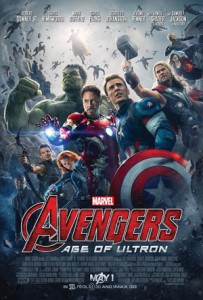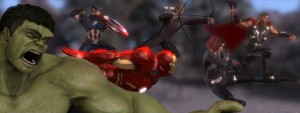French title is called Le diable au corps and I have read this several times over very recently. This book is rather thin. That helps. But mainly, because it is a good read. The book and the author has an extraordinary background. The book is an extraordinary read. If I could only bring 10 books into an island of isolation, The Devil in the Flesh would be one in my collection of solace.

In the line of creativity work, what have I done when I was 16 to 18? I did not even start writing my first song. Raymond Radiguet wrote this book inspired by his affair with a married woman when he was 16. The author died in 1923 of typhoid fever at the age of 20. The Devil in the Flesh is a work of a genius (borrowing my French friend Yvan’s exact words and I agree). I could only ponder upon the what-if.
The main character – a 16 years old boy – is having an affair with Martha Lacombe, a young woman whose husband is fighting the WW I. The emotional journey as well as its details within and the immaturity displayed is so real that I reckon for those who have been in love or have a crush with someone in the younger days should be able to relate. I can relate every bit of it.
The context is important. Back in the era of WW I, affair of such nature I would think could be frown upon. Even being condemned. The opening page sets out how the story would unfold in a lighthearted manner – which dominates the entire novel despite the tragic end.
We lived at F., on the banks of the Marne.
My parent disapproved of friendships between the sexes. But our sensuality, which is born with us, though for a time it remains dormant, was aroused rather than quelled by their disapproval.
I have never been a dreamer. What appears dream to others more credulous than I seems to me to be as real as cheese to cat – in spite of the glass that covers it. Yet the glass does exist.
If the glass breaks, the cat takes advantage, even if it is his master who breaks it and cuts his hand in the process.
One day, Marthe took the narrator for a furniture shopping trip for her future home as her fiance is still at the front line fighting a war. Naturally, Marthe would want to pick what her fiance wants. But influenced by the narrator – out of jealousy no less – Marthe begins to doubt her decisions and instead, sides with the narrator’s rationale, and picks what the narrator wants.
At the end of this exhausting day I could justifiably congratulate myself on my achievements. Item by item, I had succeeded in transforming this marriage of love, or rather of infatuation, into a marriage of reason, and a strange marriage of reason at that, since reason had no part in it, each finding in the other only the advantages provided by a marriage of love.
As she left me that evening, far from seeking to avoid further advice, she had asked me if I would help her during the next few days to choose the rest of her furniture. I said that I would, but only if she swore that she would never tell her fiance, since the only chance of his coming in the end to accept this furniture was for him to think that it was entirely her own choice. Then, if he really loved Marthe, what gave her pleasure would also please him.
Inevitably, a book with such topic, I would want to see how the author explores intimacy. In this scene, the narrator is with Marthe, inside an apartment with only the two of them. A fireplace is set with a special fragrant from the wood pieces that are sent from Marthe’s fiance’s family. At times I wonder if the book title was born from this scene.
As she slept, her head on my arm, I leaned over to look at her face, which was surrounded with flames. I was playing with fire. One day, as I approached too close, though our faces were not touching, I was suddenly like the needle which, having once moved a fraction of an inch beyond the mark, is in the magnet’s power. Is it the fault of the magnet or the needle? I became aware that my lips were on hers. Her eyes were still closed, but she was quite obviously not asleep. I kissed her, amazed at my boldness, whereas in fact, it was she who had drawn my head towards her mouth. Her hands clung to my neck; they would not have held me so fast in a shipwreck. And I did not understand whether she wanted me to save her or to drown with her.
What I also like about this book is the playfulness of this love affair, which makes the story all the better to relate. No doubt, the author (and the narrator of the story) was mature beyond his age. But time and time again, as the narrator throws tantrums and does things out of sort, all these remind me of their young age. I have been there done that. And I am certain many readers too.
Love wishes to share its happiness. A woman who is cool by nature becomes demonstrative, kisses you in the nape of the neck and invents innumerable tricks to distract you if you happen to be writing a letter. I never wanted to kiss Marthe so much as when her attention was taken up by something else; or to touch her hair and undo it as when she was pinning it up. In the boat I would throw myself upon her and smother her with kisses to make her let go of the oars and let the boat lose its way among the herbs and the white and yellow water-lilies. She saw this as a sign of uncontrollable passion, whereas I was really in the grip of this powerful urge to disturb her. We would then moor the boat behind some tall tufts of grass. The danger of being seen or of capsizing the boat made our sport all the more pleasurable.
In one particular scene, while Marthe was away from town, the narrator took a young girl Seva into Marthe’s apartment. He gets Seva drunk, wanting her not out of lust, but out of greed. Also, the narrator is fully aware that it is rape that he is about to commit.
Soon, words get to Marthe as the landlord has made a complaint that the house is not a brothel. While our narrator manages to yet again talk himself out of the situation which is not unexpected of, it is the way he internally justifies his act that intrigues me. I would say, the author was well ahead of his age.
Just as a bee plunders in order to enrich the hive, a lover enriches his love with every passing desire that besets him in the street. It is his mistress who benefits from this accumulation. I had not yet discovered this discipline that gives fidelity to unfaithful natures. When a man, lusting after a girl, transfers this ardour to the woman he loves, his desire is the stronger for being unsatisfied, and will lead the woman to believe that no one has ever loved her so much. It is a form of infidelity, though in most people’s opinion morality has triumphed. Such duplicity leads to profligacy. One should not condemn too readily therefore men who are capable of infidelity at the very height of their love; they should not be accused of frivolity. They reject this easy subterfuge and refuse to confuse their happiness with their pleasure.
After reading this book a couple of times, I ponder upon the title. Who is the devil? And why is he or she the devil? Presented with a similar situation, I probably would have done the same. But that was 1923 when the tradition and value may be different from today’s modern standard.
If I go along with the interpretation that to lie is a sin. To seduce and to fornicate with a married woman is a sin (a mortal one no less). To have caused one’s death would also be a sin. And since Diablo is the Father of Lie and more, it would not be wrong to interpret the narrative himself as the devil in the flesh. Harsh though, I must say. Almost like a self-punishment for the narrator’s regret, for perhaps the author’s regret.














